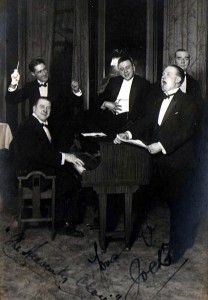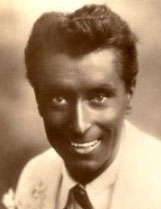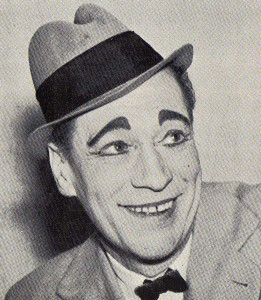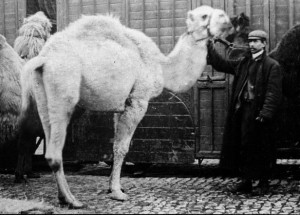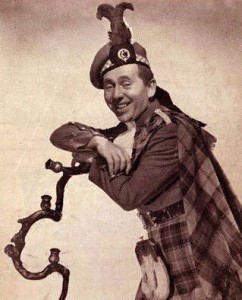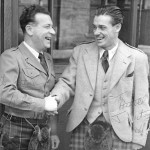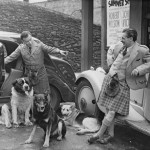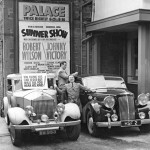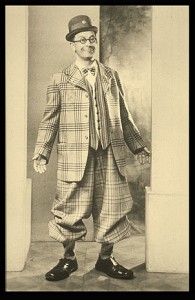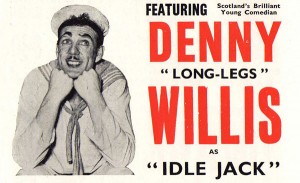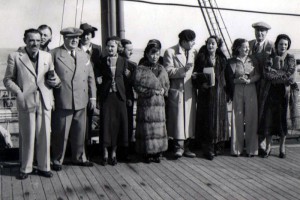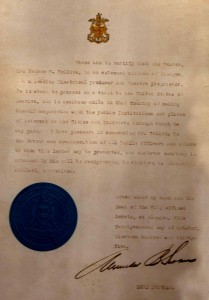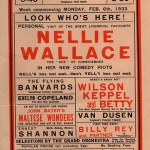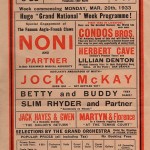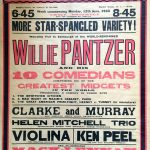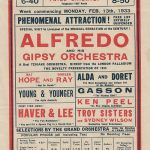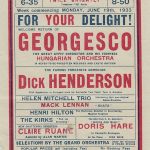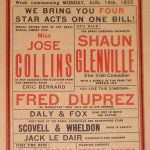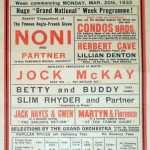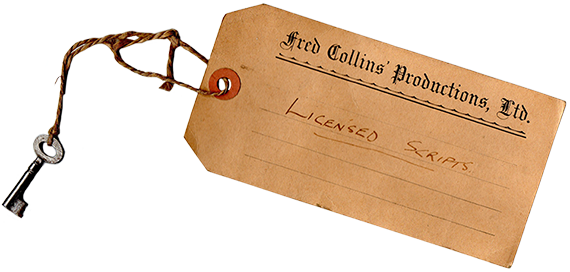
With an ever-increasing workload, it was no longer possible for Horace to personally write and stage every “Collins” Production, but he reserved the right to alter and polish each of his Producers’ creations to his own high standard before it was presented to the public. The fact that these terms were acceptable to his producers proves the professional regard in which he was held.
The profitability of the business was derived from three sources. The Theatre Box Office, the profit from productions and agency commissions. As Horace ran the Theatres, provided he kept a high-standard of entertainment which could be enjoyed in comfortable surroundings, each would provide rich pickings and the commission, at a standard maximum rate of 10% would always be assured.
When the Manager of the Pavilion Theatre Mr Jock Kirkpatrick died suddenly Horace fully expected to become Managing Director. In view of his record and was extremely disappointed when the Board decided to appoint Mr George Urie Scott who although he owned and managed many Picture Houses and Halls, knew little about the booking and production side of the business.
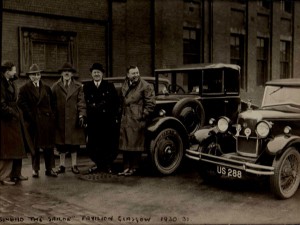
L-R Pete Collins, Jack Anthony, Dave Willis, Jock Kirkpatrick and Horace Collins outside Glasgow, Pavilion
It was of course, necessary to give the paying public the stars they wanted to see. Horace had an unerring eye for top-rate talent, like his father before him. He was constantly on the lookout for young comedians because nine shows out of ten at that time were headed by production comics who he would take under his wing and groom for stardom, just as his father had done in earlier days. It was the ambition of many aspiring young talents to be so lucky as to be offered a “Collins” long-term option contract which was a near certain ticket to stardom. These contracts could last for as long as sixteen years and the tyro (novice) would commence at around £20 a week, rising each year if the management chose to exercise their option. The trainee, who even in the early years was a fair talent, would be guided and advised while appearing with an already established star and so learn his trade and make his ‘Name’ whilst doing it.
When the top-stars became too expensive to maintain, their contract would be allowed to lapse and the newly groomed young star would take over. It should be remembered that this system guaranteed a full year’s employment in a very precarious profession.
On some occasions, an established artiste became unhappy at the restrictions placed on him by his contract which limited his immediate advancement to the top No.1 venues. When this occurred a legal wrangle could arise. Here the Artiste would have to buy out his contract and this he would do expensively, but amicably, as it was generally agreed that “Collins” had made the Star into what he had become. A good example of this was when Dave Willis made the break before his planned replacement, Jack Anthony, was quite ready.
For three pantomime seasons in the 40’s, Horace bolstered the Box Office appeal of these Glasgow Pavilion Productions by writing in a part for the perennial Glasgow favourite G H Elliott known as ‘The Chocolate-Coloured Coon’ ( remember these were different times ) with Elliott as first top of the bill in the first year then switching to Anthony top of the bill for years two and three although the contracted Anthony was on much the smaller salary.
It worked well with Jack Anthony eventually out-lasting his illustrious predecessor Dave Willis, as a top Box Office attraction. G. H. Elliott had been engaged by Fred Collins to play Dandini in ‘Dick Whittington’ in the Coliseum Theatre in Glasgow in the late twenties and immediately became very popular with the Glaswegian audiences and the pantomime broke all records. The following season, he appeared in ‘The Forty Thieves’ and made his opening entrance in a Baghdad Market place scene on the back of a real camel, kindly lent by Mr E. H. Bostock of Bostock & Wombwell’s Travelling Menagerie.
Elliott had to stand for quite a few minutes until applause subsided. He received his Command Performance during this engagement.
At that time he commanded a salary of £350 weekly. He became popular world-wide and his most famous songs were ‘Lily of Laguna’ and ‘By the Light of the Silvery Moon” so he was only too happy to return to Glasgow to appear in the company of Jack Anthony.
Other Scots comedians who came up through the “Collins” system were Jack Radcliffe and Alex Finlay – not to mention Robert Wilson the popular Scottish Tenor who alone during that era could match the drawing power of the comedians.
Bert Bendon, George West. Harry Gordon, Aly Wilson and Denny Willis all starred in many ‘Collins’ productions over the years to mutual advantage.
In these days, all theatres were officially graded as ‘Ones’, ‘Twos’ and ‘Threes’. These gradings were based on the ‘drawing’ power at the Box Office and were nothing to do with the size or facilities so that a small theatre in a town where there was only one such venue could be rated higher than a larger city theatre where there were several theatres to choose from. As far as Scotland was concerned, the Collins circuit comprised of all ‘Twos’. On leaving the “Collins” control, all artistes, without exception, went on to play the Number ‘Ones’ which were mainly under the control of either Howard & Wyndham or Moss Empires.
Between the long traditional Scottish seasonal productions which fortnightly completely changed their content, the theatres presented traditional variety and the Agency was constantly searching for fresh top-quality acts. Horace and his assistants scoured Britain, Ireland and Western Europe always looking for the best and in 1935, he even crossed the Atlantic to look at the Vaudeville Circuit and doubled his trip with a face-to-face get-together with his American contact, Neil Kirk. Kirk was a Theatrical Agent in New York who had introduced talent to Scotland from time to time through the Collins Agency and in turn the Collins Agency had sent lots of Scottish Acts over to America where they, of course, were made extremely welcome by the large number of Scots who had emigrated to the States. Sir Harry Lauder had made several very successful trips to America and was every bit if not more popular there as in London. The voyage made by Horace was undertaken in a partly holiday atmosphere as he was accompanied by Dave Willis who he was promoting at that time. It is interesting to note that Horace carried with him an open introductory letter to all American Civic Dignitaries penned by Glasgow’s Lord Provost, Alexander B Swan, describing him as one of Glasgow’s leading citizens. A small amount of 16mm film footage of this voyage has survived.
1938 saw the Glasgow Empire Exhibition open to promote British Industry and since the Collins family home was in Dumbreck, right opposite Bellahouston Park (the venue of the Exhibition), Horace and Josee spent as much time as they could visiting with many of their theatrical acquaintances. Horace produced unique colour 16mm film of the Exhibition. Unfortunately, Josee was unable to attend the opening Ceremony of the Empire Exhibition as she had just given birth to a daughter, Josette Irene, three days earlier!
